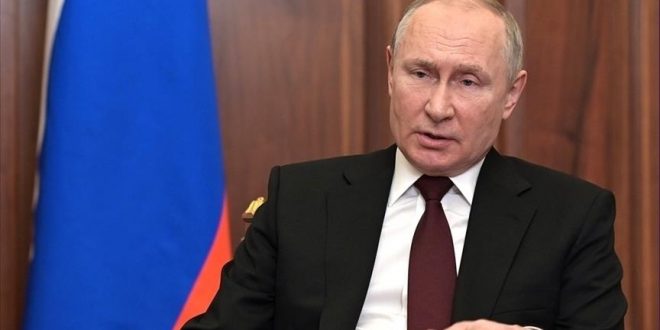Putin signs laws on provision of counter-terrorism and ratifying free trade zone protocol between EAEU and Iran
MOSCOW, July 14, (ST)- Russian President Vladimir Putin signed a law on provision of counter-terrorism and other operations of Russian Armed Forces, other forces, counter-terrorism and other operations units abroad. The document has been published on the official legal information website Thursday.
The law gives the Russian government power to introduce special economic measures. It also allows state clients – Ministry of Defense, Ministry of Emergency Situations, National Guard, Federal Security Service and Federal Protective Service – to expand or reduce the volume of goods and services within their contracts.
The special governmental measures also include “unlocking of state reserve assets, temporary engagement of mobilization capacities and facilities.” In case of introduction of special measures, companies regardless of their type and ownership are not allowed to reject state contracts “on shipment of goods, fulfillment of works, and provision of services in order to ensure counter-terrorism and other operations, carried out by Russian Armed Forces, other forces, militias, counter-terrorist and other agencies beyond the Russian Federation.”.
Moreover, Putin approved the law on ratification of the protocol to the provisional agreement signed on May 17, 2018 and leading to establishment of the free trade zone between the Eurasian Economic Union (EAEU) and Iran.
The protocol was approved in Tehran on March 14, 2022. The provisional agreement effective since October 2019 provides for preferential import conditions for a limited list of goods.
Putin has also signed the law ‘On control over the activity of individuals under foreign influence’.
The law defines a foreign agent as a person who has received support or is under foreign influence in other forms and carries out political activities, collects data on military and military-technical activities of the Russian Federation or distributes reports and materials intended for an unlimited number of people.
Russian or foreign legal entities, public associations and foreign agencies that are not legal entities, as well as individuals with or without citizenship, can be recognized as foreign agents.
The law specifies the list of foreign sources. They include foreign states and their public authorities, international and foreign organizations, foreign citizens, stateless persons, as well as foreign sources that don’t establish a legal entity. Citizens and legal entities of the Russian Federation receiving money from such persons and their proxies or acting as intermediaries in receiving financial aid, can also be listed among foreign sources.
Compiled by: Basma Qaddour

